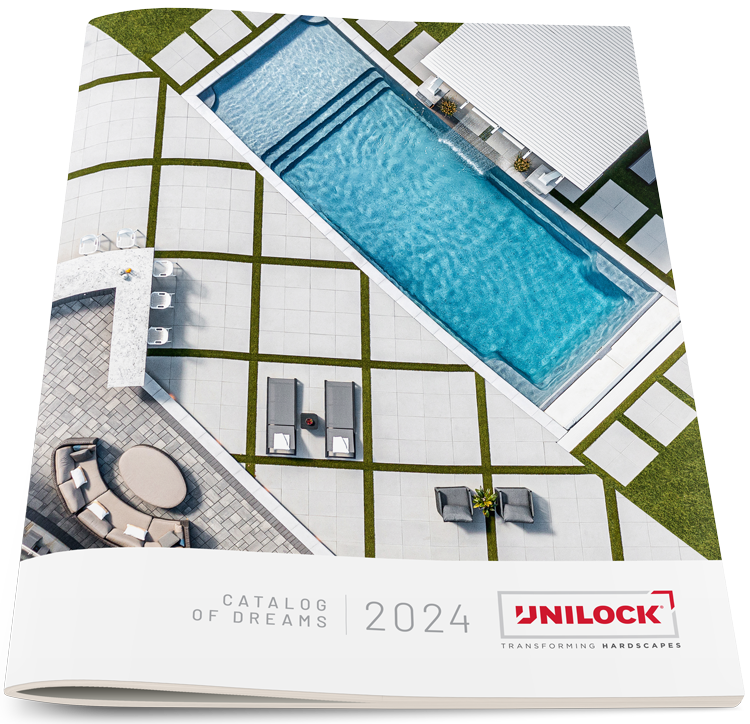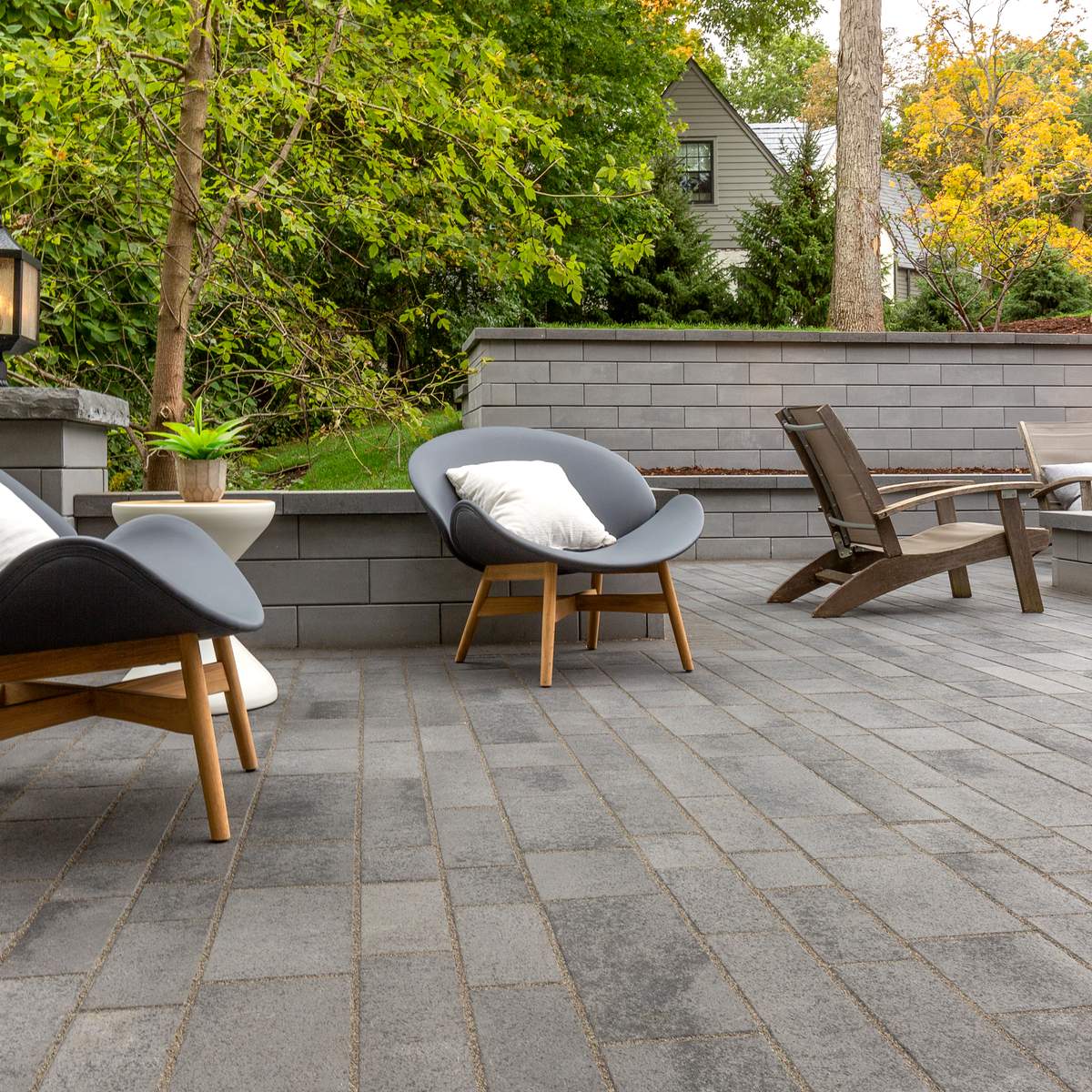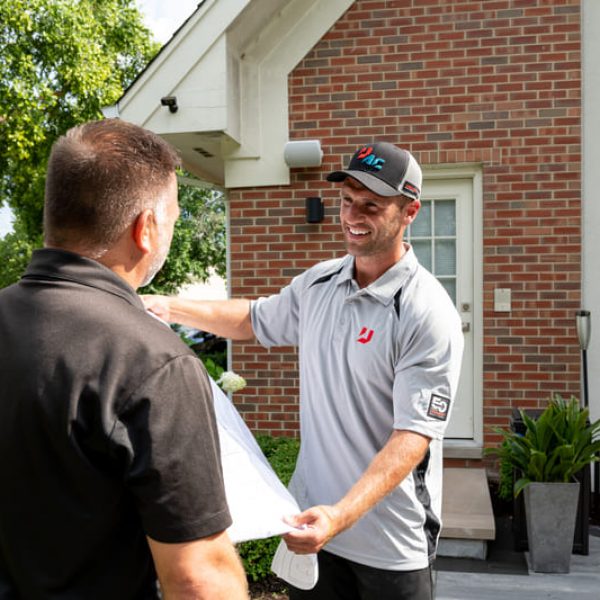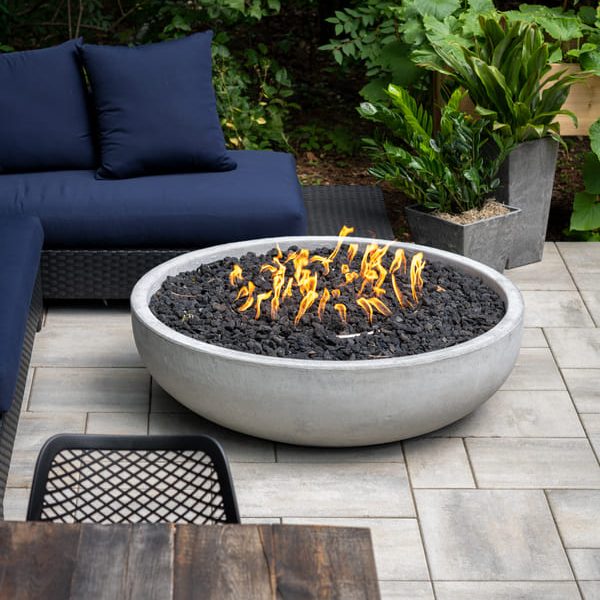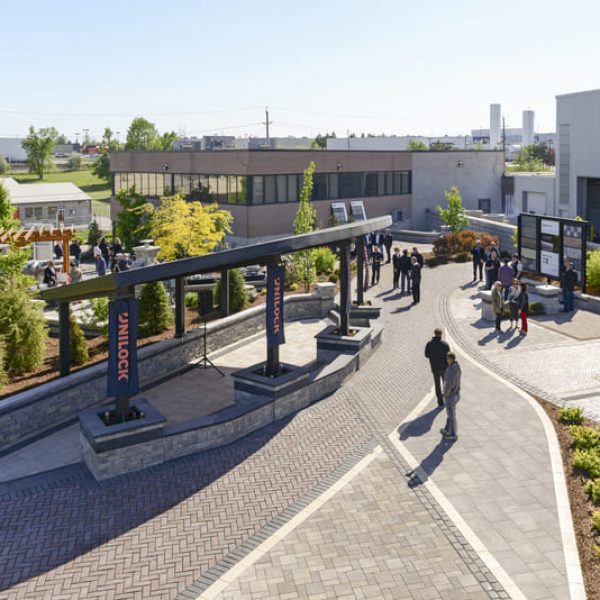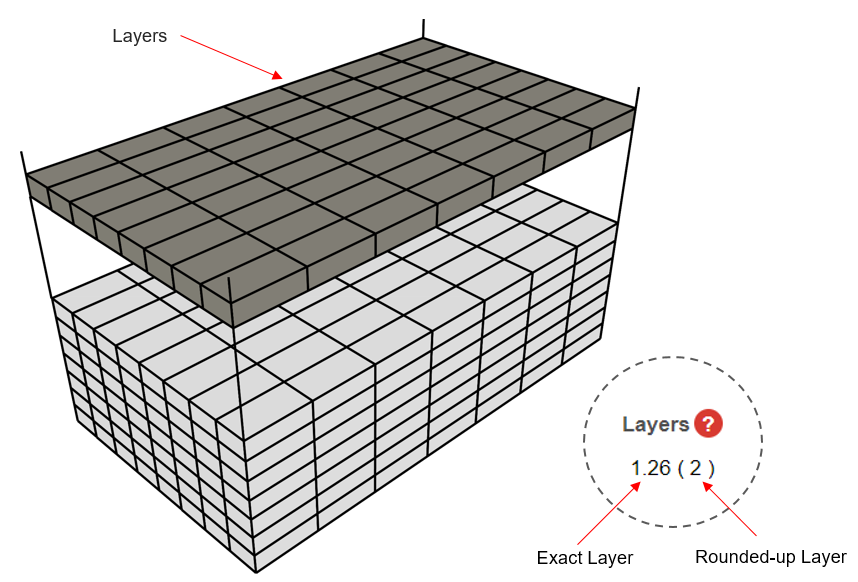Working with a Unilock Authorized Contractor is working with the best of the best. Our UACs possess the knowledge and expertise to bring your dream project to life, and deliver stunning results that will exceed your expectations.
Concrete Pavers
Highest quality concrete pavers from North America’s hardscape authority.
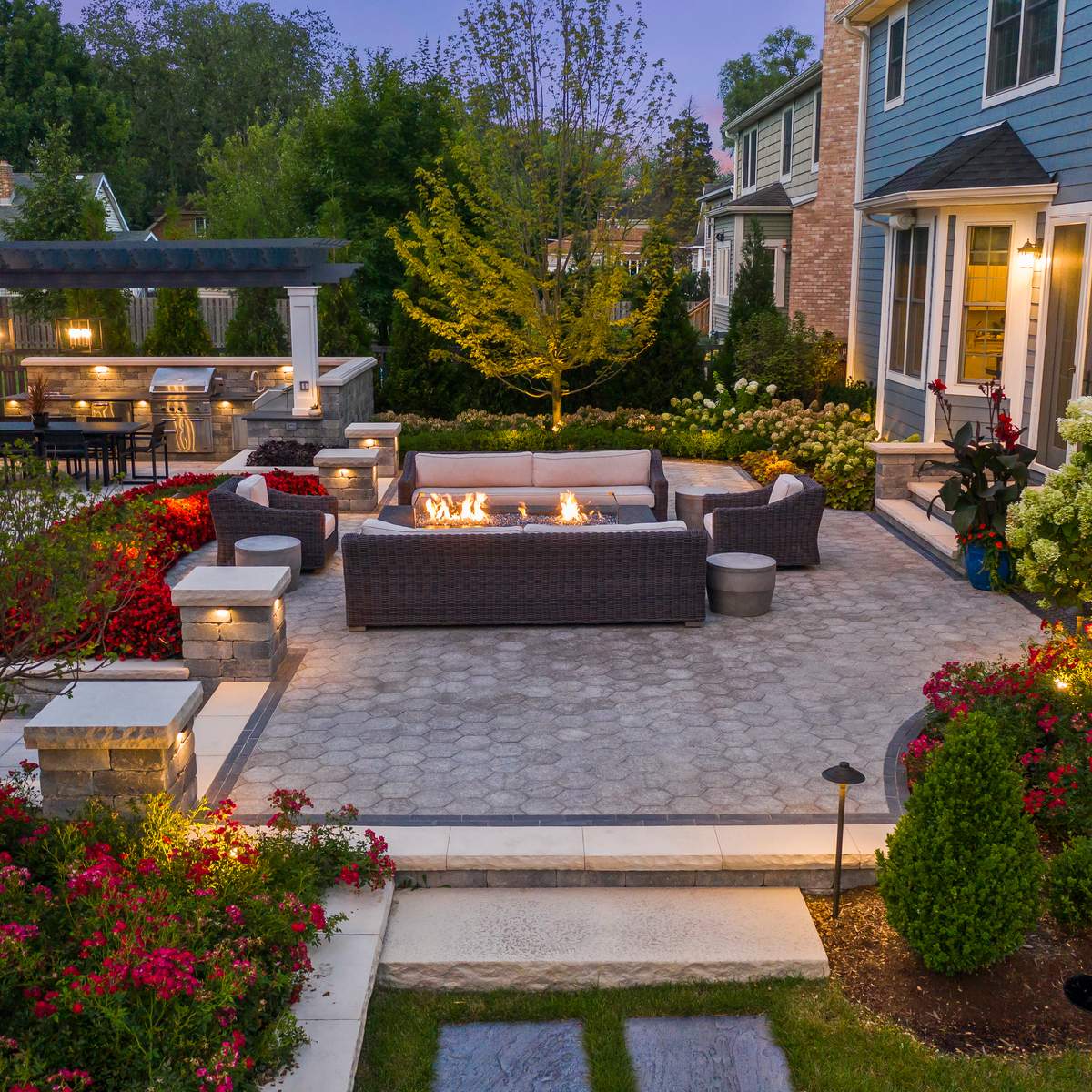
Use Concrete Pavers to Improve Your Home’s Outdoor Aesthetics
If you are considering using concrete pavers to upgrade a walkway, driveway, or outdoor living space at your home, look to the company that first introduced concrete pavers to North America – Unilock.
At Unilock, we help homeowners transform their outdoor spaces by offering long-lasting products that emulate natural stone, clay bricks, old-world cobblestones, contemporary granite, and more.
The reason Unilock has been used by hundreds of thousands of homeowners throughout North America is simple – we’ve been revolutionizing the industry for more than 50 years by developing new technologies and innovations that help our products to remain highly durable while maintaining their visual appeal for a lifetime.
Unique Features of Unilock Concrete Pavers
Some of the unique features we’ve developed for our concrete pavers include:
• ColorFusion™ Technology: This proprietary technology randomly disperses color to produce a surface that replicates the look of natural granite.
• EasyClean™ Stain Resistance: Ideal for pool decks and patios, this technology goes beyond the surface with a sealing agent that enhances the surface color and helps protect pavers from stains.
• Ultima™ Concrete Technology: Our manufacturing process results in concrete pavers that are up to four times the strength of conventional poured concrete.
Additionally, Reala™ Technology ensures that pavers are cast in a variety of realistic surface textures, from natural stone, to brick and cobblestone faces.
No matter which type of concrete pavers you choose for your project, they will be resistant to damage from freeze/thaw cycles and will come with the protection of a Transferable Lifetime Guarantee.
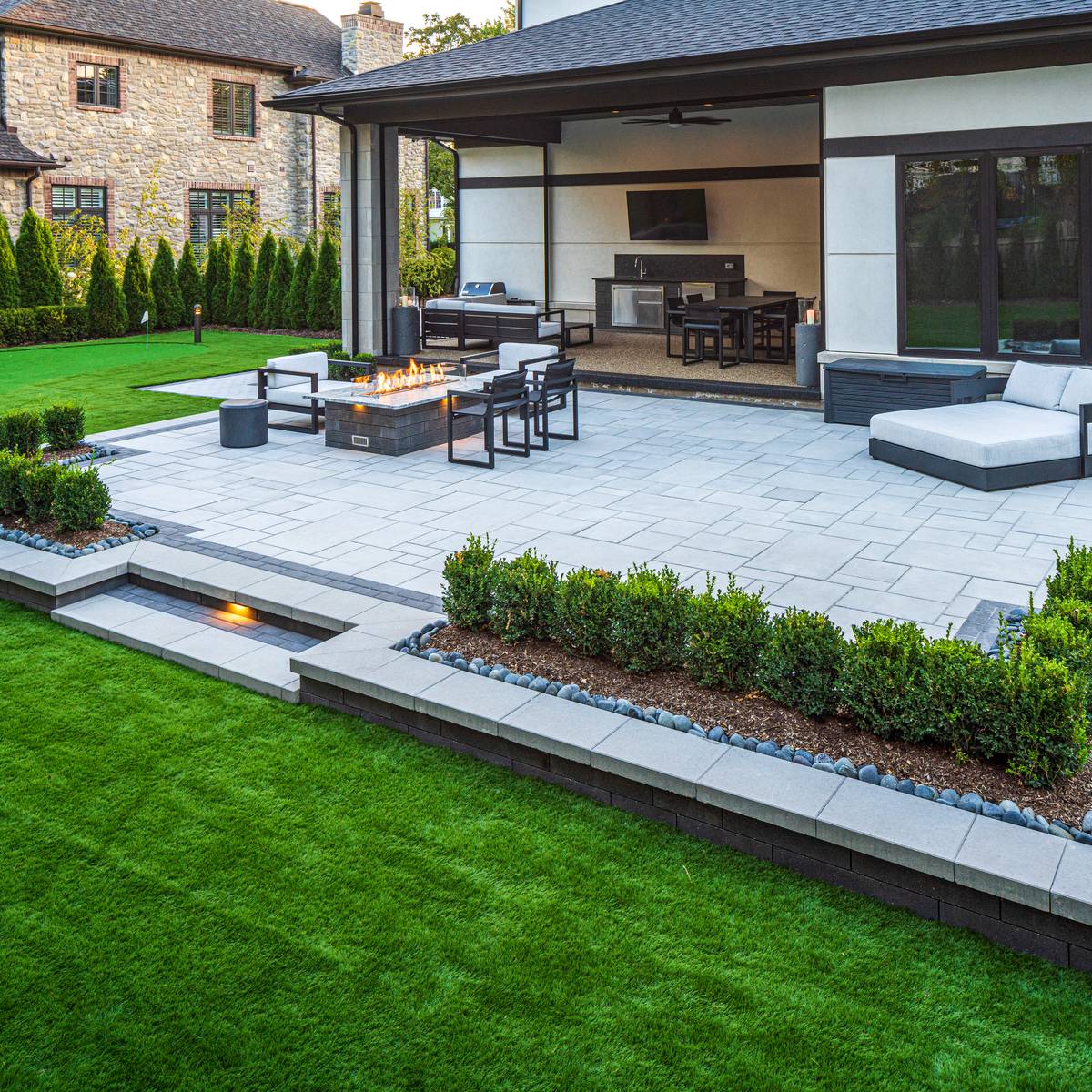
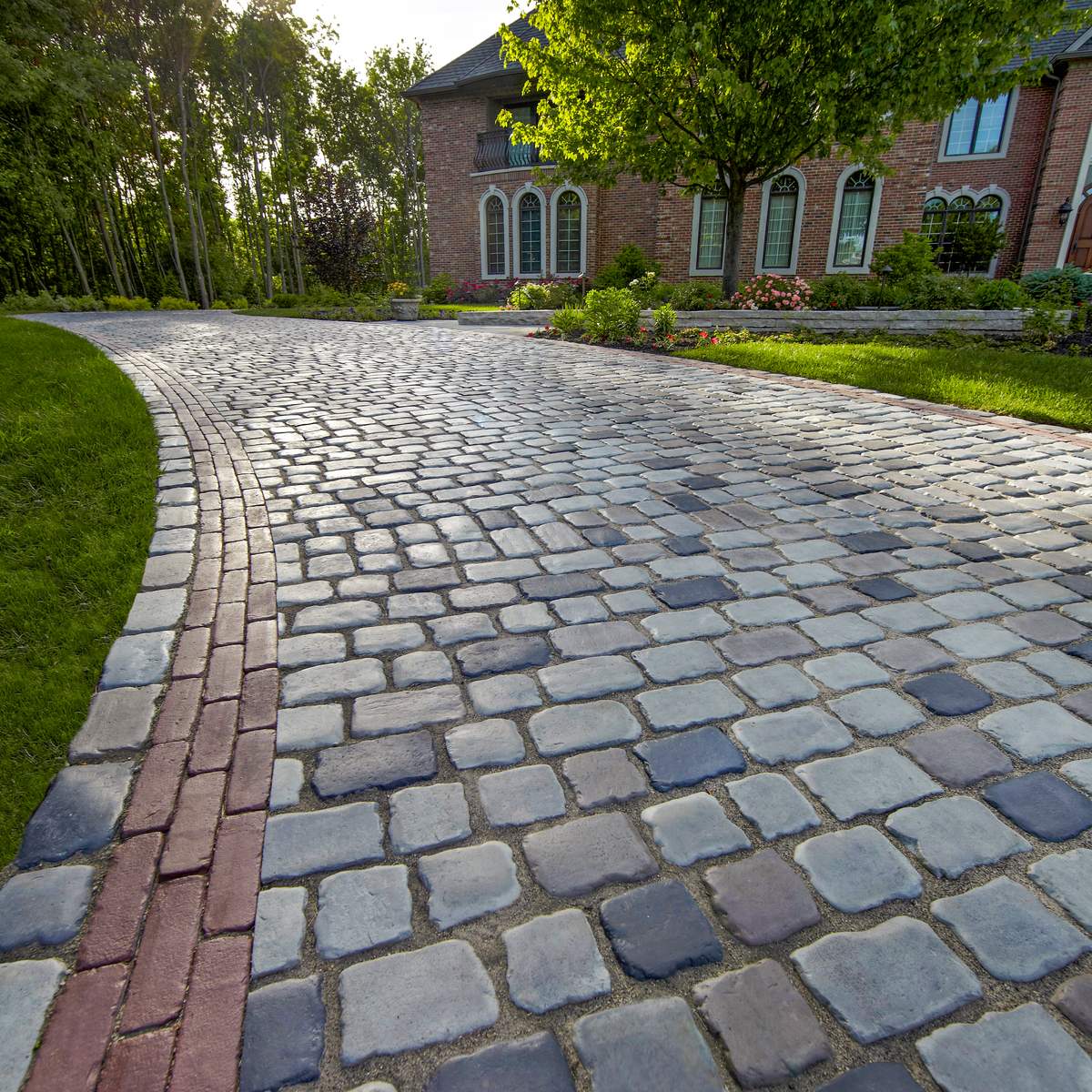
Why Choose Unilock for Concrete Pavers
Unilock has been installing Concrete Pavers in North America since 1972. We understand how important it is to get the right services for your project. We work hard to ensure you'll receive the best service possible.
All products are not created equal. Many products look great when installed, but the difference in quality shows over time.
For over 50 years, the very best designers and contractors have relied on Unilock to supply cutting-edge paving and wall products that enable them to build extraordinary projects that stand the test of time.
Durability that is second to none
We don’t just aim to meet industry standards; we exceed them (American Society for Testing and Materials, Canadian Standards Association).
Color that lasts
The refined surface of EnduraColor products is achieved with a two-step manufacturing process.
Unique textures
Deep, rich colors and a multitude of unique Reala textures combine to deliver the timeless beauty of Unilock Elegance.
Are Concrete Pavers Right for You?
Pros of Concrete Pavers
• Aesthetics: There are an endless number of design possibilities when working with concrete pavers. You can create patterns, designs, and borders to achieve any look you desire.
• Low Maintenance: Concrete pavers require little maintenance after installation. They are extremely durable and will last for many years.
• Durability: Concrete pavers are very durable and can withstand a variety of applications.
Cons of Concrete Pavers
• Cost: Concrete pavers account for 20% of the total cost of an installation. However, they are a wise investment because they will last much longer.
• Installation: The installation process for concrete pavers is more complex than other types of paving materials. It is important to hire a qualified contractor to ensure the job is done correctly.
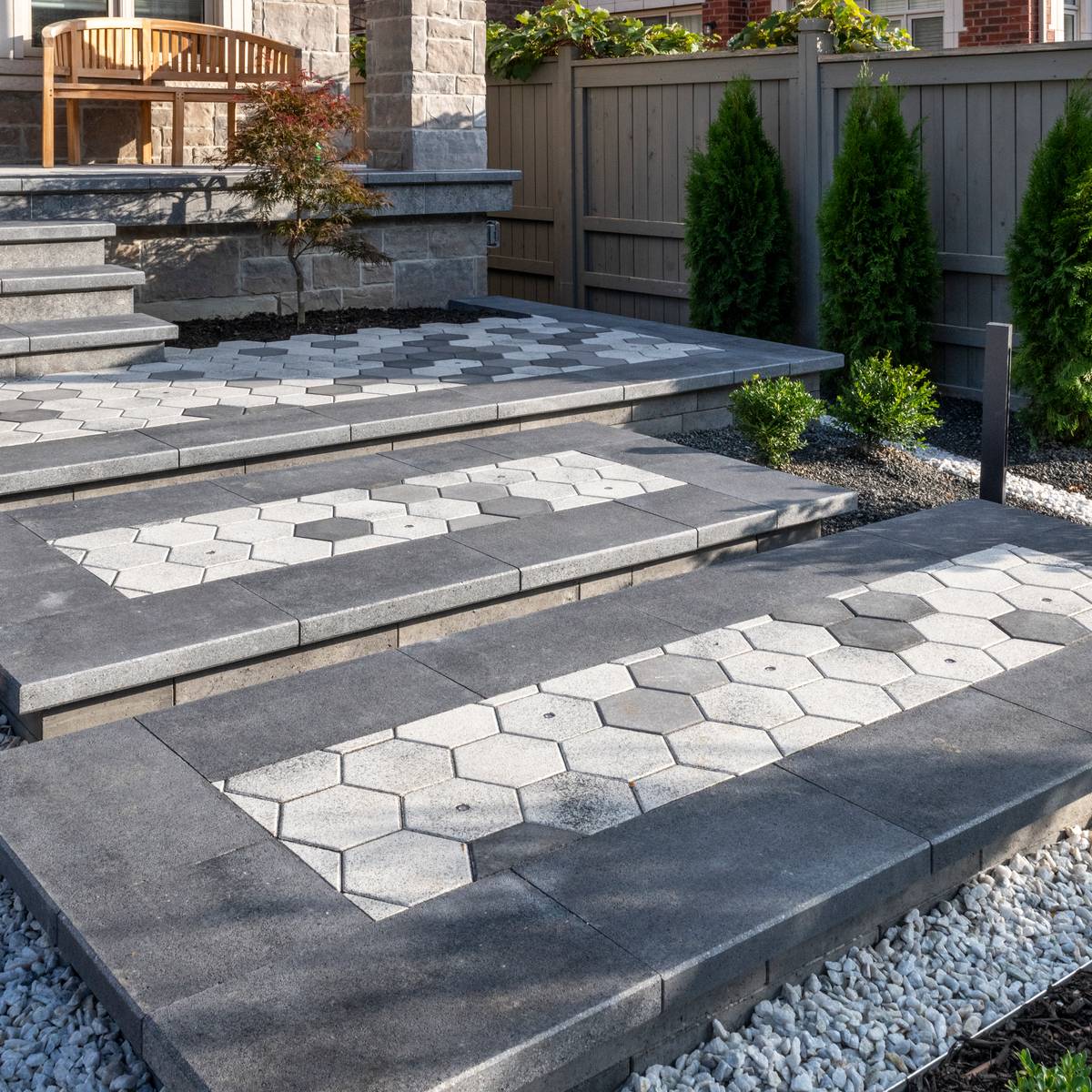

High-Quality Concrete Pavers Installation
The installation of concrete pavers requires a lot of skill and experience, and that's why we do our best to ensure that we provide you with the highest quality concrete pavers on the market.
Residential Concrete Pavers
Elegant designs from Unilock can add value and long-lasting beauty to your outdoor space. Let us help you create an outdoor space that reflects your style.
Commercial Concrete Pavers
From simple walkways to elaborate driveways, we can design and install commercial-grade concrete pavers that will last for decades.
